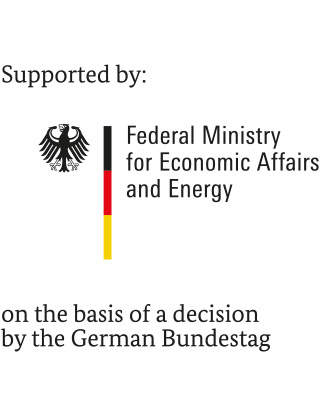RESEARCH
It is the network’s declared goal to improve and innovatively expand on existing system solutions.
Remotely operated vehicles for underwater applications combine a great number of key technologies to be able to offer assistant features. Configurability, adaptability, interactivity, reliability, mobility, manipulation capability, cognitive ability, perceptual capability and decision-making ability are essential functions here.
These are provided by the technology clusters mechanical systems, sensors, drives, power supply, light and pressure-neutral underwater materials, underwater communications, cybernetics, environmental perception and data interpretation as well as underwater navigation. Only through cooperation can a successful overall system be accomplished.
INSPECTION
“Everybody is busy working with the microscopes, but somebody needs to have a smart idea again.”
Dr. Rudolf Virchow
Founder of cellular pathology
The demand for small, mobile products is great and will continue to increase in the coming years due to heightened safety measures and the growth of industrial activities offshore. Existing solutions leave little scope for the very special applications or divers are used who sometimes face very dangerous situations. Here, the network can give some indication as to the demand, analyze current solutions and advance new developments with the suitable partners.
SECURING
“Anyone who conducts research by appealing to authority is not using his intelligence; he is just using his memory.”
Leonardo da Vinci
Italian universal genius, painter, sculptor, architect, designer and natural scientist
A special feature of underwater vehicles is the assessment of the acquired data for decision making. In safety-related fields of activity, an assessment of objects or structures is indispensable.
This requires optical tools with intelligent image-based analysis methods. The classification process can be supported semi-automatically to facilitate the pilot’s job. In this regard, the network plans developments to improve current offers.
Surveying
Considering that the human race has only explored a mere 2% of all oceans ... the remaining 98% of sea creatures are laughing and hoping that mankind will continue to have such limited knowledge ...
© Stefan Wittlin
(*1961), Swiss "Medicus-Canis", cynologist – dog therapist, animal psychologist, author of books and columnist
The technological core issues of this field of development are navigational solutions, underwater communications, cybernetics as well as data transmission and processing. This is how the basis for precise, reliable and replicable underwater surveys can be created. In conjunction with state-of-the-art sensor systems, it will be possible to simplify and improve processes.
Documentation
Give me a place to stand and I will move the earth.
Archimedes
Greek mathematician and physicist
* around 285 BC, † 212 BC
As positioning underwater is subject to other rules than on land, it is difficult for current solutions to robustly and plausibly determine the precise position of the device and the exact line of sight of the attached camera systems.
To complete the task underwater in a detailed manner and for its technical documentation, it is indispensable to reference the recorded sensor data in the system of coordinates. The network partners intend to work on improving precision.
Contact
Bitte füllen Sie alle Felder korrekt aus
The Mini-ROV network is an open network.
Would you like to know more about content, cooperation options or participation?
Please contact us.
Network Management
Prof. Uwe Freiherr von Lukas
Dr.-Ing. Kristine Bauer
Dipl.-Math. Eva-Maria Mahnke
Mini-ROV
c/o Fraunhofer IGD
Joachim-Jungius-Strasse 11
18059 Rostock
Germany
Tel. +49 381 4024-408
Fax +49 381 4024-199
info@mini-rov.de


